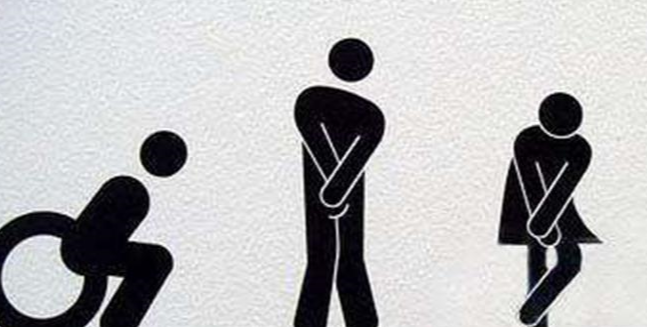Don't Hold Your Urine! Beware of Cystitis
Date:2024-10-19 click:0
Cystitis, an inflammation of the bladder, is a common problem that affects many people, particularly modern white-collar workers who lead busy and often sedentary lives. With long working hours and a fast-paced lifestyle, it's easy to neglect the urge to urinate. However, consistently holding in urine can harm your bladder and lead to cystitis, a condition that, if untreated, can cause significant discomfort and health issues.
Why Does Holding Urine Lead to Cystitis?
Holding urine for extended periods creates excessive pressure in the bladder, and it gives bacteria present in the urine more time to multiply. Over time, this pressure and bacterial buildup can result in inflammation and infection, eventually leading to cystitis. For some, this may also result in additional urogenital issues, such as prostatitis in men. The bladder’s inability to flush out bacteria regularly can cause the infection to take root, making the condition more severe. Therefore, it’s critical to avoid the habit of delaying urination too frequently.
What Are the Symptoms of Cystitis?
When cystitis develops, the symptoms can vary from mild to severe. Common signs include a frequent need to urinate, pain or burning during urination, cloudy or strong-smelling urine, and discomfort in the lower abdomen. In some cases, there may also be blood in the urine or feelings of general malaise. In more advanced cases, the infection can spread to the kidneys, leading to fever, back pain, and a sense of fatigue. Recognizing these symptoms early on can prevent more serious complications.
What Should You Do When Cystitis Occurs?
For those with acute cystitis, getting plenty of rest and drinking more water is key to flushing out the infection. Increased water intake helps promote urination, which aids in the elimination of bacteria from the urinary tract. However, it’s important to urinate as soon as you feel the urge and not hold it in. In addition to staying hydrated, it’s advisable to avoid spicy, acidic, or irritant foods, which can further irritate the bladder lining. For those who experience discomfort, a warm sitz bath may help soothe symptoms.
Chronic cystitis, however, is more complex and requires addressing any underlying causes. If there are factors such as urinary tract obstructions, bladder stones, or foreign bodies, these must be removed to prevent recurrent infections. For women who experience recurring cystitis, a thorough gynecological examination is essential to rule out or treat any coexisting infections in the female genital tract. Without addressing the root cause, chronic cystitis can be difficult to manage and may lead to long-term health complications.
Medical Treatment Options for Chronic Cystitis
For chronic cystitis, medical treatments often involve intravesical drug perfusion or bladder irrigation with solutions like neomycin, silver nitrate, or methylene blue. These solutions help to reduce infection and inflammation directly in the bladder.

In addition to these local treatments, antibiotics are commonly prescribed based on the results of urine culture and sensitivity tests. The course of antibiotics should be followed strictly, even after symptoms subside, to ensure a full recovery and prevent recurrence. Periodic tests during treatment are essential to monitor progress and adjust the therapy as needed.
For those seeking alternative treatments or wishing to avoid the side effects of long-term antibiotic use, the herbal remedy Diuretic and Anti-inflammatory Pill can be a natural and effective option. This formula helps clear heat, detoxify the body, promote blood circulation, and alleviate inflammation. It is especially helpful for treating cystitis and other urogenital infections, including prostatitis and epididymitis, without the risk of drug resistance or side effects.
Daily Prevention Tips for Cystitis
1. Stay Hydrated: Drink plenty of water throughout the day to help flush out bacteria and keep your urinary system healthy. Avoid caffeinated or sugary drinks that can irritate the bladder.
2. Practice Good Hygiene: Keep your genital area clean and dry. Avoid holding urine for too long, and always urinate after sexual activity to help prevent infections.
3. Maintain a Balanced Diet: Eat a healthy diet rich in fresh vegetables and fruits, especially those with natural diuretic properties, such as watermelon, cucumber, and grapes. These foods can help maintain bladder health by encouraging frequent urination.
4. Wear Comfortable Clothing: Avoid tight-fitting clothing, particularly tight jeans and underwear, which can trap moisture and create a breeding ground for bacteria.
5. Monitor Your Sexual Health: Engage in regular but safe sexual practices. Use protection, and ensure that both partners maintain good hygiene to reduce the risk of transmitting bacteria that can lead to cystitis.
You may also be interested in:
Treat Your UTI in A Natural and Safe Way
How does diuretic and anti-inflammatory pill work on cystitis?



